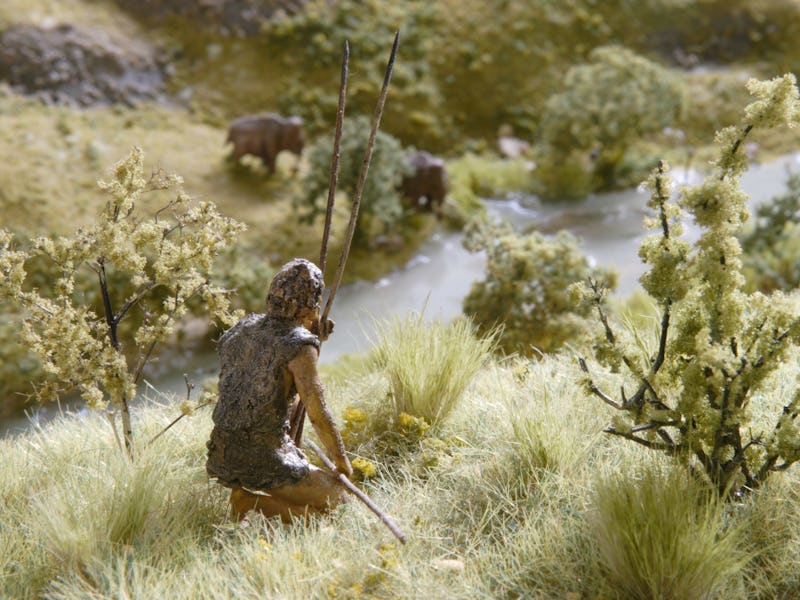Neanderthal study exposes a 'fist bump' kind of revelation
A piece of yarn is an insight into an ancient mind.

It was long assumed that the Neanderthals were far dumber than us, the modern-day human. But today, an ever-growing body of research suggests they were, in fact, not inferior.
A study published in April of this year can be tossed onto the pile. In this case, Neanderthal intelligence is linked to an unexpected example of mathematical ability: a tweeny piece of twine.
Inverse is counting down the 20 stories redefining 'human' from 2020. This is number 11. See the full list here.
In the paper, the researchers report their discovery of a 6-millimeter-long cord fragment, estimated to be about 50,000 years old. The discovery was made at an archaeological site called Abri du Maras, in southeastern France.
Do not underestimate the magnitude of this finding on the basis of the size of the actual evidence. This is the important bit: the piece of cord in question was created from three-strand fibers.
A photograph of the Neanderthal cord.
According to the researchers, the twisting of fibers together to make a cord indicates that Neanderthals understood basic math — they at least realized sets of numbers can be combined in different ways and that a set of three makes for a stronger cord than a pair.
The finding “goes to counter the dimwitted Neanderthal stereotype," Bruce Hardy, an anthropology professor at Kenyon College and lead author of the paper, told Inverse. He said the moment of discovery "was definitely a fist bump kind of moment."
What exactly the cord was used for is not clear, but it’s likely it was used to make clothes, nets, bags, and other helpful tools. Hardy described the cord as “an example of an infinite use of finite means”.
The discovery, in turn, is the oldest evidence of spinning yarn from natural fibers — and an exciting indication that Neanderthals enjoyed a material culture.
The finding only proves further our closest extinct human relative should be given more intellectual props than they currently get. “I suspect that we have underestimated our ancestors, and that sophisticated technological behaviors are much older than we thought," Hardy said.
Inverse is counting down the 20 stories redefining 'human' from 2020. This is number 11. Read the original story here.
This article was originally published on